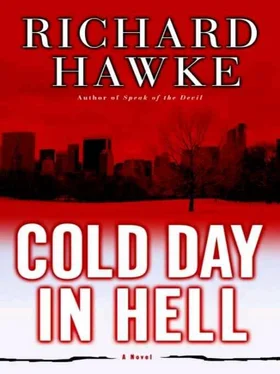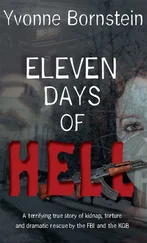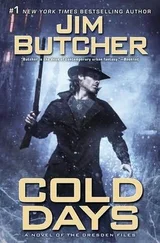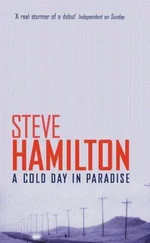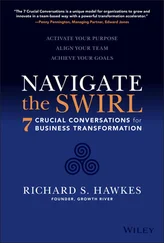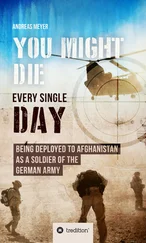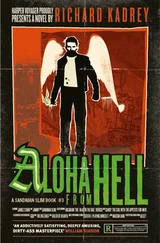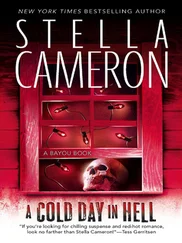I pocketed the phone and stared down the cabdriver, who was eyeing me in the rearview mirror. Tough guy like me. This wasn’t a new dance, this thing with Margo, though it had been a nice long stretch since the last time we’d gotten out of synch like this. I try not to be knee-jerk defensive, so I didn’t put the blame on her. Not all of it, anyway. The problem with what I do for a living is that it doesn’t stay at the office. Hell, I am the office. It’s mobile work, but as much of it gets done with the head as with the feet. Margo was right-I do slip into the lives of dead people. Usually, they’re already cold when I meet them, but sometimes not. Sometimes they’re like Robin Burrell, and I get a taste of the live item before he or she meets the abrupt fate. Margo wasn’t like Megan Lamb’s brother, Josh. That’s what she was reminding me in her phone message. Three’s a crowd, and when the third one is, to put a blunt point on it, fresh kill, Margo wants no part of it. Or, to be fair, a limited part. She’d been disingenuous during our argument earlier. She does get jealous. My focus turns to other people when I’m working. Sometimes too much of my focus. Tough guy like me. I hate the sight of broken bodies. It disgusts and disturbs me every bit as much as it drives me to seek out who the hell is responsible. I don’t blame Margo for not wanting to hear about it. I don’t want to share. “You just suck it up,” Charlie used to tell me. “A butcher’ll wash his hands before he heads home. You do the same. If you can’t do it, think about maybe not going home for a while.”
The cab dropped me off at the Church of the Sacred Heart just as the second service was letting out. Shirley Malone was standing at the door at the top of the steps, testing the staying power of Father Manekin’s ear. As the priest spotted me coming up the steps, I could have sworn he breathed a silent prayer.
“Fritz. How good to see you.”
“Father.”
“I’m afraid you’re too late. I’ve already issued the congregation its marching orders for the week.”
“Shame. What was your topic?”
My mother answered for him. “Equanimity. That means you’re no more important than anybody else.” She gave me her version of the evil eye, something to which I long ago developed a Kevlar-like resistance. Father Manekin saw his opportunity to make a break for it.
“Don’t remain a stranger, Fritz.” He gave my mother’s hand a squeeze. “I’ll remember what you said, Shirley.”
“What did you say?” I asked after the priest had slid off to another of his flock. Shirley presented me with her elbow so that I could walk her down the steps in regal fashion.
“That’s between Theo, myself and the Lord.”
I felt blessed for the exclusion.
We picked up an armful of lilies at a shop on Ninth then made our way to the subway and caught the number 7 to Queens. It’s been said that my mother looks like Maria Callas by way of Audrey Hepburn, which might also stand for a description of the quicksilver blend of her personality, though what is generally meant is that she is a skinny thing with a swan’s neck, a strong flirtatious face, and a jet-black hairdo. She’s hovering near sixty, but if you mention that to her, you might get a black eye from her tough little fist. Stuff a force of nature into a size-four dress and there you have her. Shirley grew up in Hell’s Kitchen-as did I-and remains there still with only her memories of the place as it once was, before developers and gentrification-level rents steamrolled not only the color out of the area but the very name itself. It’s now tagged Clinton, which is a designation that’ll put you to sleep before you’ve even finished saying it. Shirley is a bona fide ghost of the old neighborhood. Far fewer haunts, but those that remain she clings to with her notorious tenacity.
We got off at Fortieth Street in Sunnyside and walked the several blocks to Calvary Cemetery. Shirley crossed herself before entering, shooting me a look.
The recent snowfall had left the cemetery with a smooth white covering, broken by the thousands of chalky stones poking out of the ground like uneven teeth. We walked several hundred feet along the road before making our way over the snow to the simple stone that read: PATRICK MALONE. Shirley let out a gasp. “There it is.”
“It” was not the stone itself. She was referring to the small bouquet of daisies sitting atop the stone. I started forward, but Shirley put her hand on my chest. “Don’t walk.” She scoured the site. “Damn it all. There should be footprints.”
She was right. Assuming that the flowers had been left off earlier in the day-which was the anniversary of my uncle Patrick’s remains being identified, and the date agreed upon for the official registration of his death-there should have been footprints in the fresh snow. But there were none.
“He’s too clever,” Shirley hissed. “He knew the forecast and he got here early, damn his eyes.” She stepped forward and planted her lilies in the snow. Then she plucked the daisies from the tombstone, crossed herself and buried her face in the flowers.
A year before I was born, an undercover cop in the NYPD’s Organized Crime Task Force working to infiltrate the gangs in Hell’s Kitchen lost one of his informants, nineteen-year-old Patrick Malone. My mother’s twin brother. The undercover cop had worked diligently for months to flip Patrick, recognizing in the young tough a muted streak of humanity and tending it diligently, the way a good gardener tends his plants. What the cop failed to tend with equal care were safeguards to protect Patrick from his ruthless cronies should the facts behind the relationship ever come to light. Which is exactly what happened. The cop was found out, and ten days after Patrick’s disappearance, an extra-strength black trash bag washed up on the sand at Rockaway Beach in Brooklyn. Five days after that, Shirley Malone stood with her head bowed as the scant contents of the bag-no other bags were ever recovered-were lowered into a grave at Calvary Cemetery. My mother allegedly uncorked her first bottle of whiskey that same afternoon and managed to work her way halfway down the label before the cop came by to check on her and put a stop to it. It was a week after the funeral that the cop and Shirley began their affair. It would last all of four months. The cop was married. One child and another on the way. He wouldn’t find out until several months after breaking things off with Shirley that she was pregnant with me and planning to see it through. Her relationship with the bottle was moving along nicely by that point as well. After I was born, the cop made a point of keeping tabs on me and my mother when he could, dropping in on us now and again. Sometimes I was invited to leave the apartment for an hour while the two hashed things out. To some extent, despite his spotty presence in my life, my old man managed to mold me, if not directly as often as I’d have preferred then at least by dint of his considerable persona and the name he made for himself as he rose steadily up the ranks of the police department. I steered in the direction of the NYPD myself for a while-managed one year at John Jay-though I fell with a pronounced bounce from that particular path. Eventually, my father was named police commissioner for the city of New York. Commissioner Harlan Scott. But one summer afternoon four years into his post, he stepped down without notice or explanation and, five days after that, disappeared forever from the face of the earth. One would have had to be watching closely-which I was-to see that my mother’s relationship with the bottle moved to a deeper level after the old man’s disappearance. Even fifteen years later-eight years after Harlan Scott was officially declared dead-she never tires of reminding me how the important men in her life have a habit of disappearing.
Читать дальше
